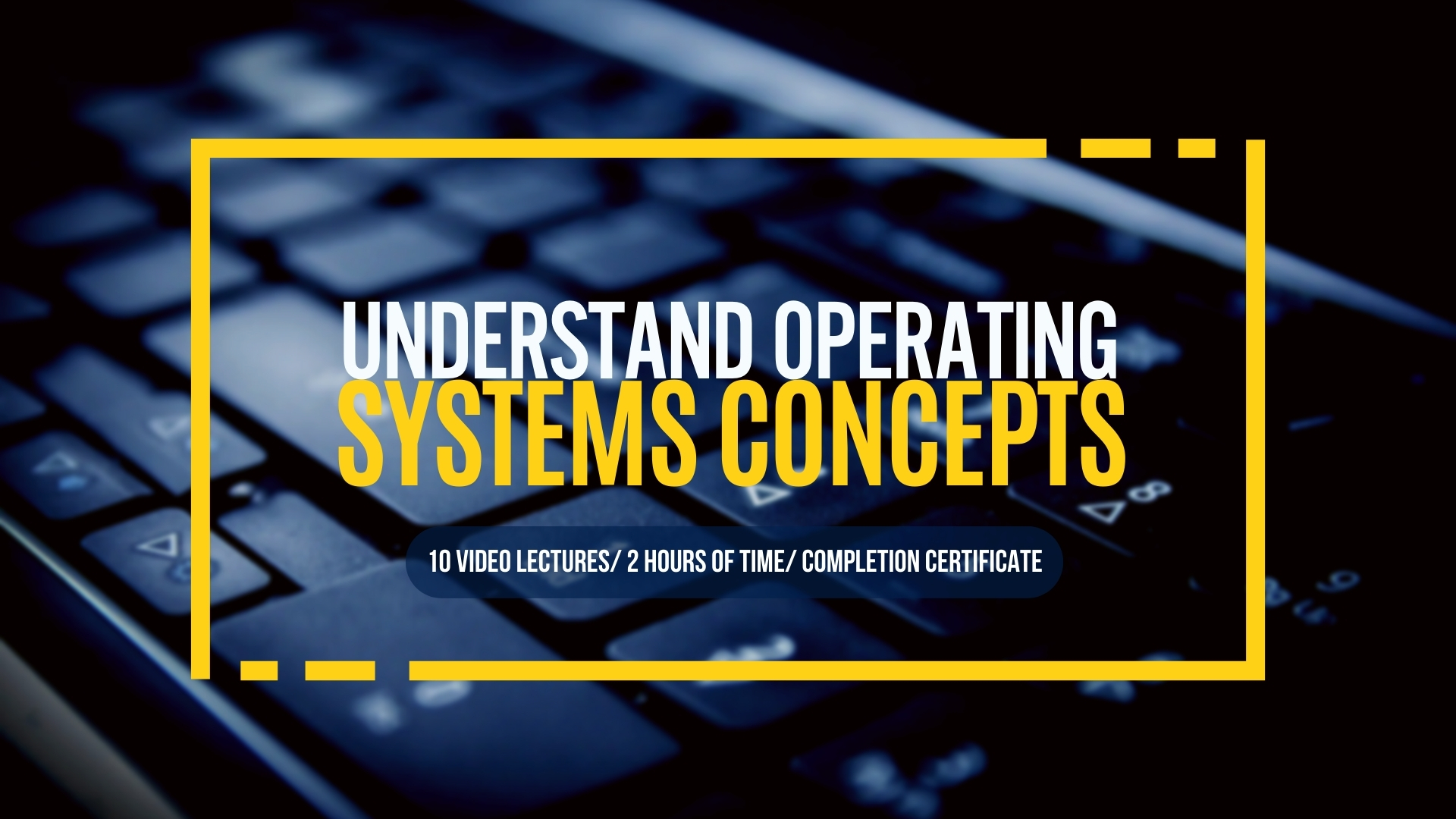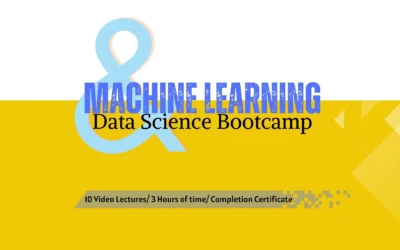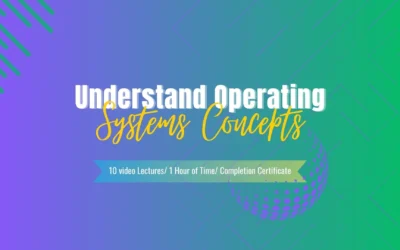Course Completion
Unlock the inner workings of operating systems with this in-depth course Understand Operating Systems Concepts designed to give you a strong foundation in OS principles and functionalities. Operating systems serve as the vital interface between hardware and user applications, managing resources and enabling smooth operation of computer systems. In this course Understand Operating Systems Concepts, you’ll delve into key concepts, including process management, memory allocation, file systems, and input/output operations. This course offers a comprehensive understanding of operating systems, the software layer that bridges hardware and applications. It covers the fundamental principles behind process and memory management, file systems, input/output operations, and security. Students will explore operating system concepts like multitasking, synchronization, and deadlock prevention, along with case studies in contemporary operating systems such as mobile OS and cloud computing. Gain insights into critical OS functions like multitasking, process synchronization, and techniques for deadlock avoidance. We’ll also explore security mechanisms essential for protecting system integrity. With real-world case studies, including modern mobile operating systems and cloud-based environments, this course bridges theory with current applications, preparing students for a comprehensive understanding of OS design and operation. Whether you’re an aspiring developer, IT professional, or curious learner, this course equips you with the skills to analyze, understand, and work effectively with operating systems across various platforms.
Objectives of Understand Operating Systems Concepts Course
Explain the fundamental functions of an operating system, including resource management, process coordination, and system security.
Understand and apply core OS concepts such as process scheduling, memory allocation, and file system organization to real-world scenarios.
Analyze multitasking, synchronization, and deadlock prevention techniques, assessing their importance in efficient OS performance.
Examine security principles and mechanisms within operating systems to understand how they protect data and system integrity.
Compare and contrast various types of operating systems, including mobile and cloud-based OS, through case studies that highlight practical applications and challenges.
Benefits of Joining This Course Understand Operating Systems Concepts:
Foundational Knowledge in OS: Build a strong understanding of operating systems, essential for careers in IT, software development, and systems administration.
Hands-on Learning with Real-World Case Studies: Apply concepts to contemporary OS environments like mobile and cloud systems, making the learning practical and up-to-date.
Problem-Solving Skills in OS Management: Learn to tackle challenges such as process synchronization, memory management, and deadlock, which are critical for system efficiency and stability.
Enhanced Career Prospects: Mastering OS concepts can open doors to roles in tech support, systems engineering, and cybersecurity, where understanding operating systems is a key asset.
Preparation for Advanced Topics: This course sets a strong foundation for exploring more advanced fields like OS design, network security, and virtualization technologies.
What More to Expect?
- 10 complete lessons within 2 hours of time
- Quizzes to assess learning from the course
- Option to discuss problems on the lessons through the course forum
- Certificate of achievement issued with the affiliation of HRDI and Skill Jobs
Course Features
- Lectures 10
- Quizzes 1
- Duration 2 Hours
- Skill level All levels
- Language Bengali
- Students 0
- Certificate Yes
- Assessments Self






